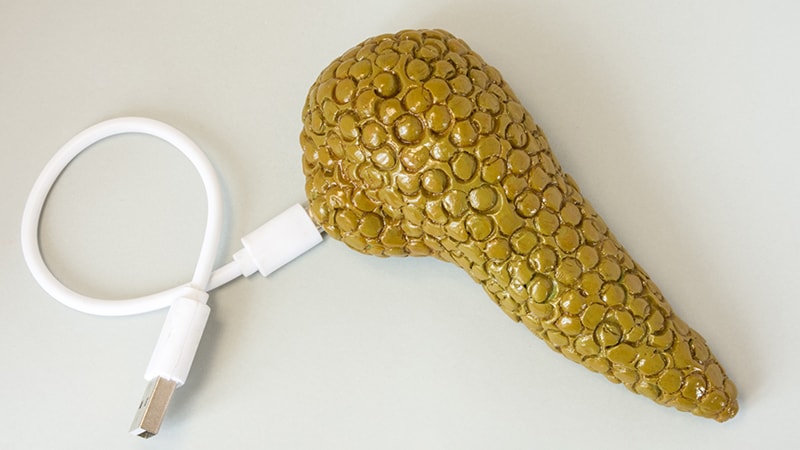Northerner
Admin (Retired)
- Relationship to Diabetes
- Type 1
A semi-automated insulin delivery system improved glycemic control in young children with type 1 diabetes aged 1 to 7 years without increasing hypoglycemia.
"Hybrid closed-loop" systems — comprised of an insulin pump, a continuous glucose monitor (CGM), and software enabling communication that semi-automates insulin delivery based on glucose levels — have been shown to improve glucose control in older children and adults.
The technology, also known as an artificial pancreas, has been less studied in very young children even though it may uniquely benefit them, say the authors of the new study, led by Julia Ware, MD, of the Wellcome Trust–Medical Research Council Institute of Metabolic Science and the University of Cambridge, UK. The findings were published online January 19 in the New England Journal of Medicine.
"Very young children are extremely vulnerable to changes in their blood sugar levels. High levels in particular can have potentially lasting consequences to their brain development. On top of that, diabetes is very challenging to manage in this age group, creating a huge burden for families," she said in a University of Cambridge statement.
There is "high variability of insulin requirements, marked insulin sensitivity, and unpredictable eating and activity patterns," Ware and colleagues note.
"Caregiver fear of hypoglycemia, particularly overnight, is common and, coupled with young children's unawareness that hypoglycemia is occurring, contributes to children not meeting the recommended glycemic targets or having difficulty maintaining recommended glycemic control unless caregivers can provide constant monitoring. These issues often lead to...reduced quality of life for the whole family," they add.

 www.medscape.com
www.medscape.com
"Hybrid closed-loop" systems — comprised of an insulin pump, a continuous glucose monitor (CGM), and software enabling communication that semi-automates insulin delivery based on glucose levels — have been shown to improve glucose control in older children and adults.
The technology, also known as an artificial pancreas, has been less studied in very young children even though it may uniquely benefit them, say the authors of the new study, led by Julia Ware, MD, of the Wellcome Trust–Medical Research Council Institute of Metabolic Science and the University of Cambridge, UK. The findings were published online January 19 in the New England Journal of Medicine.
"Very young children are extremely vulnerable to changes in their blood sugar levels. High levels in particular can have potentially lasting consequences to their brain development. On top of that, diabetes is very challenging to manage in this age group, creating a huge burden for families," she said in a University of Cambridge statement.
There is "high variability of insulin requirements, marked insulin sensitivity, and unpredictable eating and activity patterns," Ware and colleagues note.
"Caregiver fear of hypoglycemia, particularly overnight, is common and, coupled with young children's unawareness that hypoglycemia is occurring, contributes to children not meeting the recommended glycemic targets or having difficulty maintaining recommended glycemic control unless caregivers can provide constant monitoring. These issues often lead to...reduced quality of life for the whole family," they add.

'Artificial Pancreas' Life-Changing in Kids With Type 1 Diabetes
A semi-automated insulin delivery system using proprietary software improved time in target blood glucose range in young children aged 5 years, on average, with type 1 diabetes.
